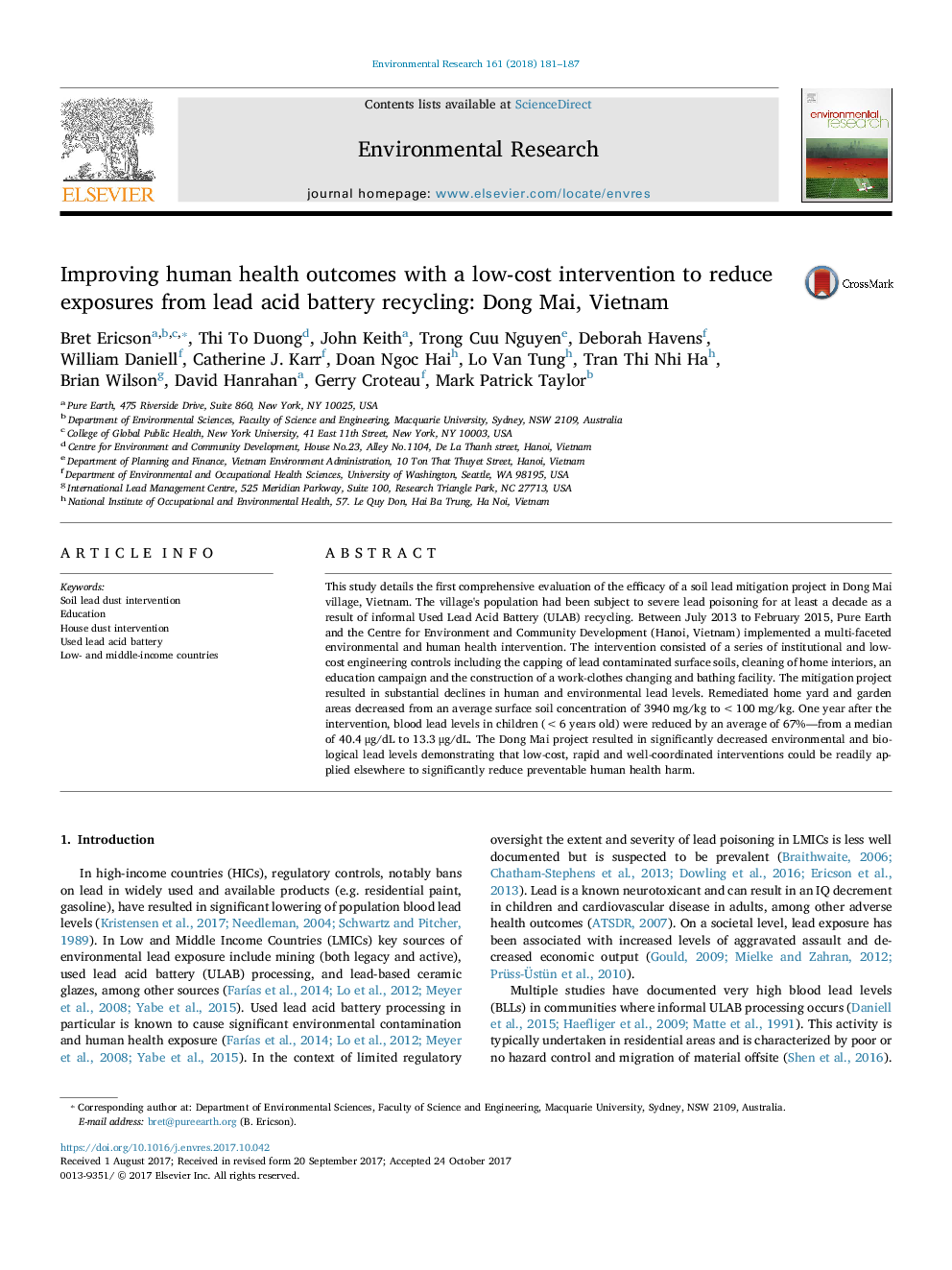ترجمه فارسی عنوان مقاله
بهبود نتایج سلامت انسان با مداخله کم هزینه برای کاهش مواجهه با بازیافت باتری اسید سرب: دونگ مای، ویتنام
عنوان انگلیسی
Improving human health outcomes with a low-cost intervention to reduce exposures from lead acid battery recycling: Dong Mai, Vietnam
| کد مقاله | سال انتشار | تعداد صفحات مقاله انگلیسی |
|---|---|---|
| 140914 | 2018 | 7 صفحه PDF |
منبع

Publisher : Elsevier - Science Direct (الزویر - ساینس دایرکت)
Journal : Environmental Research, Volume 161, February 2018, Pages 181-187
ترجمه کلمات کلیدی
مداخله گرد و غبار سرب خاک، تحصیلات، مداخله گرد و غبار خانگی استفاده از باتری اسید سرب، کشورهای کم درآمد و متوسط،
کلمات کلیدی انگلیسی
Soil lead dust intervention; Education; House dust intervention; Used lead acid battery; Low- and middle-income countries;

